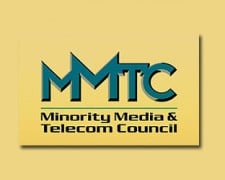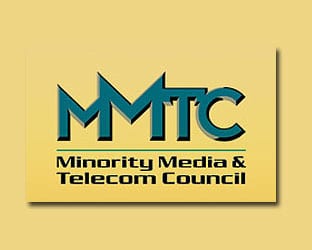 MMTC was able to cite numerous platform planks in party platforms since 1980 that addressed the issue of diversity of media ownership in one way or another – and laments the fact that the issue is absent from both planks this year.
MMTC was able to cite numerous platform planks in party platforms since 1980 that addressed the issue of diversity of media ownership in one way or another – and laments the fact that the issue is absent from both planks this year.
It can’t be because at long last the issue has been resolved, because nothing could be further from the truth – the fact is that the numbers are going in the wrong direction.
According to MMTC’s Jacqueline Clary, the first broadcast license was awarded in 1909. It took another 40 years for a license to go to a minority-owned entity. Likewise, she says, the first minority-owned license for a television station wasn’t awarded until 1973.
The result has been a regimen of “structural discrimination” that has the minority community starting out decades behind the mainstream, and often left with slim pickings in terms of quality licensed facilities.
The issue was a feature of party platforms, usually but not always on the Democratic side, and the Democratic Party had a pledge to work toward greater diversity of ownership during the 2008 election. But this year – nothing.
Clary wrote, “Why should you and your candidate for public office care about this issue? Three reasons: (1) demographics are shifting toward a majority-minority U.S. population, (2) the exclusionary broadcast pattern is repeating in emerging industries, and (3) the FCC is facilitating a massive shift in spectrum licensing to move spectrum from broadcasters to telecommunications services in the next few years. We cannot afford to have minority-owned businesses locked out of the telecom industry.”
Both parties recognize the importance of telecommunications, says Clary, but “skirt around” the diversity issue. She concluded, “Both political parties ought to address this issue before November 6. For its part, the FCC needs to ensure minority ownership is addressed during its incentive auction rulemaking proceeding. If we fail to take this opportunity to include minority inclusion as priorities now, minorities will continue to fall behind in the years ahead – and so will our nation.”
RBR-TVBR observation: The intractable nature of this issue is demonstrated by the fact that even when it has been on a platform, little has been done to forward the cause, often in spite of willing regulators in favor of action. The courts have not helped, making it very difficult to write regulations in such a way that minority entities can be given a leg up when competing in the licensing process, and the abolishment of the tax certificate program, which helped minorities deal for existing stations, was another step backwards.
A number of suggestions from MMTC are likely being considered even as we speak as part of the quadrennial review. It will be very interesting to see if any of them become part of a Notice of Proposed Rulemaking.
Meanwhile, while it’s nice to have a platform plank on diversity, the simple fact is that as hot as some broadcast issues can get from time to time, including the Michael Powell 2003 dereg attempt and the indecency brouhaha kicked up by Janet Jackson, they never ever figure meaningfully in presidential politics. So ultimately, we’d be watching the quadrennial a lot more closely than any party platform when it comes to this issue.





